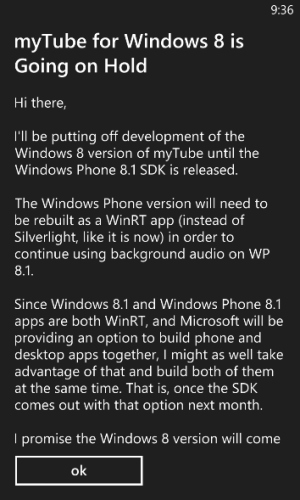I think "RT" as a name will die, but the idea of a touch-first OS that puts a premium on security and ease of use will live on. My hope is that you have a situation more like iPhone/iPad, where you can use lots of the phone apps on the tablet without too many issues but there are also plenty of high-quality tablet-specific apps. Having a 10" or even 8" screen just makes for a qualitatively different experience. Someone earlier referenced Office vs. Office Mobile, and that is a great example. Using Office Mobile on a phone isn't the same. Even if you had a new, feature-rich touch-optimized Office for WP it wouldn't be the same as using a larger tablet. The extra real estate does make a difference- and after having a Dell Venue 8 Pro for a few weeks I'm finding that is true in most circumstances. The smaller phone screen either shrinks everything down or limits you to a small viewable slice.
I think iOS and Android, and now to some extent Windows RT have shown that you can do a lot with an 8"-10" device; things you can't do or would find more difficult/less enjoyable on a small screen.


